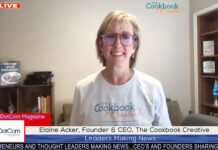Sallie Mae, Sallie Mae, Sallie Mae. You may have heard this name before, especially if you or someone you know has taken out student loans. Sallie Mae Corporation, commonly known as Sallie Mae, is a publicly-traded corporation that was originally created in 1972 as a government-sponsored enterprise (GSE) by the U.S. Congress. Sallie Mae’s mission was to support the student loan market by providing low-cost loans to students and families who needed financial assistance to pay for higher education. Over the years, Sallie Mae has undergone significant changes in its ownership, structure, and purpose, but it remains a prominent player in the student loan industry.
Today, Sallie Mae operates as a private lender that offers various financial products and services to help students and families finance college education. Sallie Mae provides private student loans, student loan refinancing, and other educational financing options. Sallie Mae also offers college savings plans, such as 529 plans, which allow families to save money for college expenses in a tax-advantaged account.
Despite its important role in the student loan market, Sallie Mae has been a controversial figure over the years. Some critics argue that Sallie Mae has contributed to the rising costs of higher education by making it easier for students to borrow large sums of money, which in turn allows colleges and universities to charge more tuition. Others have criticized Sallie Mae’s business practices, such as charging high interest rates and fees, and engaging in aggressive debt collection tactics.
Here are five important things you should know about Sallie Mae:
1. Sallie Mae was once a government-sponsored enterprise (GSE). As mentioned earlier, Sallie Mae was originally created as a GSE by the U.S. Congress. As a GSE, Sallie Mae had certain privileges, such as access to government funding and a line of credit from the U.S. Treasury. However, in 2004, Congress terminated Sallie Mae’s GSE status and privatized the company. Today, Sallie Mae operates as a fully private company.
2. Sallie Mae is one of the largest student loan lenders in the country. According to data from the Consumer Financial Protection Bureau (CFPB), Sallie Mae is the third-largest private student loan lender in the United States, behind only Wells Fargo and Discover. In 2020, Sallie Mae originated approximately $3.9 billion in private student loans.
3. Sallie Mae offers student loan refinancing. In addition to offering private student loans, Sallie Mae also provides student loan refinancing. Refinancing allows borrowers to combine multiple student loans into one new loan with a potentially lower interest rate and better terms. However, not all borrowers will qualify for refinancing, and it may not always be the best option for everyone.
4. Sallie Mae has faced criticism over its business practices. As mentioned earlier, Sallie Mae has been accused of engaging in aggressive debt collection tactics and charging high interest rates and fees. In 2014, Sallie Mae settled a lawsuit with the Department of Justice over allegations that the company violated the Servicemembers Civil Relief Act by improperly charging active-duty military members high interest rates on their loans.
5. Sallie Mae offers college savings plans. In addition to its student loan products, Sallie Mae also offers college savings plans, such as 529 plans. 529 plans allow families to save for college expenses in a tax-advantaged account, and Sallie Mae offers several different options for these plans.
Sallie Mae is a significant player in the student loan industry, providing private student loans, student loan refin
ancing, and college savings plans. While Sallie Mae was originally created as a government-sponsored enterprise, it is now a fully private company and one of the largest student loan lenders in the United States. However, Sallie Mae has faced criticism over its business practices, including allegations of aggressive debt collection tactics and high interest rates and fees.
Despite these criticisms, Sallie Mae continues to be an important resource for students and families who need financial assistance to pay for higher education. Private student loans can be a valuable tool for those who have exhausted other options, such as federal loans, grants, and scholarships. Refinancing can also be a useful strategy for borrowers who want to lower their interest rates and simplify their repayment.
That being said, it is important for borrowers to do their research and carefully consider their options before taking out a loan or refinancing. Private student loans can come with higher interest rates and fewer borrower protections than federal loans, and refinancing may not be the best choice for everyone. Additionally, it is important to be aware of the potential risks and drawbacks of college savings plans, such as 529 plans.
In summary, Sallie Mae is a well-known and significant player in the student loan industry, offering various financial products and services to help students and families finance higher education. While it has faced criticism over its business practices, it remains an important resource for those who need financial assistance to pursue their educational goals. It is important for borrowers to carefully consider their options and do their research before making any financial decisions related to student loans and college savings.
Sallie Mae, which stands for the Student Loan Marketing Association, is a publicly-traded corporation that was originally created in 1972 as a government-sponsored enterprise (GSE) by the U.S. Congress. Sallie Mae’s mission was to support the student loan market by providing low-cost loans to students and families who needed financial assistance to pay for higher education. The company was established as part of the Higher Education Act of 1965, which aimed to make higher education more accessible to a broader range of students.
As a GSE, Sallie Mae had certain privileges, such as access to government funding and a line of credit from the U.S. Treasury. These privileges allowed Sallie Mae to provide low-cost loans to students and families who might not have been able to afford higher education otherwise. In the early years, Sallie Mae focused primarily on purchasing federally-guaranteed student loans from lenders and packaging them into securities that could be sold to investors.
Over the years, Sallie Mae has undergone significant changes in its ownership, structure, and purpose. In 2004, Congress terminated Sallie Mae’s GSE status and privatized the company. Today, Sallie Mae operates as a fully private company, offering various financial products and services to help students and families finance higher education.
One of Sallie Mae’s primary products is private student loans. Private student loans are loans that are not guaranteed by the federal government, unlike federal student loans. Private student loans can be used to pay for tuition, room and board, textbooks, and other college-related expenses. Unlike federal loans, which have fixed interest rates set by Congress, private student loans have variable interest rates that are based on the borrower’s creditworthiness and other factors. Private student loans also typically have fewer borrower protections and repayment options than federal loans.
Sallie Mae is one of the largest private student loan lenders in the United States. According to data from the Consumer Financial Protection Bureau (CFPB), Sallie Mae is the third-largest private student loan lender in the country, behind only Wells Fargo and Discover. In 2020, Sallie Mae originated approximately $3.9 billion in private student loans.
In addition to private student loans, Sallie Mae also offers student loan refinancing. Refinancing allows borrowers to combine multiple student loans into one new loan with a potentially lower interest rate and better terms. Refinancing can be a useful strategy for borrowers who want to simplify their repayment and potentially lower their monthly payments. However, not all borrowers will qualify for refinancing, and it may not always be the best option for everyone.
Sallie Mae has also faced criticism over the years for its business practices. One common criticism is that Sallie Mae has contributed to the rising costs of higher education by making it easier for students to borrow large sums of money. This, in turn, allows colleges and universities to charge more tuition. Critics argue that this has created a cycle of debt for many students, who are unable to repay their loans after graduation.
Another criticism of Sallie Mae is that it has charged high interest rates and fees on its student loans. In 2014, Sallie Mae settled a lawsuit with the Department of Justice over allegations that the company violated the Servicemembers Civil Relief Act by improperly charging active-duty military members high interest rates on their loans. The settlement resulted in Sallie Mae paying $60 million in restitution to affected borrowers.
Sallie Mae has also been accused of engaging in aggressive debt collection tactics. In 2013, the Consumer Financial Protection Bureau (CFPB) accused Sallie Mae of violating consumer protection laws by engaging in unfair and deceptive debt collection practices. The CFPB alleged that Sallie
Mae misled borrowers about their repayment options and improperly charged late fees. The CFPB fined Sallie Mae $96.6 million as part of a settlement agreement.
Despite these criticisms, Sallie Mae remains an important resource for students and families who need financial assistance to pay for higher education. Private student loans can be a valuable tool for those who have exhausted other options, such as federal loans, grants, and scholarships. Private loans can provide additional funds to cover the gap between the cost of attendance and other financial aid. Private loans can also be used to pay for certain expenses that federal loans do not cover, such as study abroad programs.
It is important for borrowers to carefully consider their options and do their research before taking out a private student loan. Private loans can come with higher interest rates and fewer borrower protections than federal loans, and borrowers may not be eligible for certain repayment plans or loan forgiveness programs. Borrowers should also be aware of the potential risks and drawbacks of college savings plans, such as 529 plans.
In conclusion, Sallie Mae has played a significant role in the student loan market since its inception in 1972. The company has undergone significant changes over the years, from a government-sponsored enterprise to a fully private company. Sallie Mae offers various financial products and services to help students and families finance higher education, including private student loans and student loan refinancing. While Sallie Mae has faced criticism over its business practices, it remains an important resource for those who need financial assistance to pursue their educational goals. It is important for borrowers to carefully consider their options and do their research before making any financial decisions related to student loans and college savings.

















